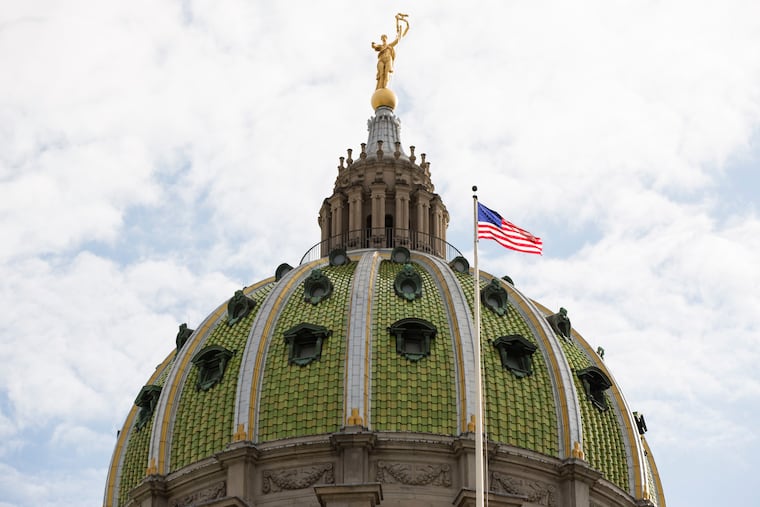Pennsylvania eyes retirement-savings plan for its portfolio
With Pennsylvania facing a wave of retirees leaving the workforce with no savings, top state officials are working to head it off

HARRISBURG, Pa. (AP) — With Pennsylvania facing a wave of retirees leaving the workforce with no savings, top state officials are working to head off the financial blow.
A task force organized by Treasurer Joe Torsella has spurred an effort that now has key state lawmakers writing legislation to create a potentially sweeping retirement savings program that would be administered by Pennsylvania's Treasury Department.
There are an estimated 2.1 million people in Pennsylvania, accounting for one-third of the workforce, who have employers offering no retirement savings accounts or pension plans.
And it is potentially course-correcting for government finances in one of the nation's oldest states, as well as for workers who have no retirement savings.
"I think this could be life-changing for many of those people," Torsella, a Democrat, said. "We're one of the states in the union where we're really getting older, the shift is really pronounced and we need this more than most. This is something that would help those people, it would help small businesses and it would help the commonwealth's books."
Pennsylvania has somewhat of a blueprint to follow, since six other states have authorized similar programs.
The first, in Oregon, began enrollment in 2017, and is expanding in stages to apply to employers with fewer and fewer employees. OregonSaves now has more than 76,500 employees enrolled and more than $17 million in assets under management,
The idea has bipartisan support in Pennsylvania's Republican-controlled Legislature, including from House Finance Committee Chairman Mike Peifer, R-Wayne, who is drafting legislation.
A lack of financial literacy and a dearth of employer-sponsored retirement plans have created a crisis of sorts where many retirees have no savings and are at the mercy of safety-net programs, supporters of a retirement-savings plan say.
Meanwhile, Pennsylvania's retirement-age population is projected to balloon in the coming years as its working-age population shrinks.
According to the AARP, close to one-third of near-retirees, defined as people between 55 to 64, have nothing saved — and caring for people who have no retirement savings is already costing Pennsylvania.
That cost now is $700 million a year, and is projected to rise to $1.1 billion a year by 2030, according to a report prepared for the Treasury Department last year by Philadelphia-based Econsult Solutions.
In broad terms, the retirement savings program would apply to employers that do not provide a traditional pension plan or a 401(k)-style savings plan through work.
Under it, a payroll deduction is deposited into an enrollee's retirement account, which they can take from job to job.
The Treasury Department would pick a private-sector investment manager to offer various investment plan options and oversee it, much like it does roughly $5 billion in college-savings programs.
Employers would not be expected to contribute money.
Setting up the program could be a major information-technology undertaking that would take time, and details of forthcoming legislation are yet to be worked out.
That includes whether every employer without an employee retirement plan will be required to participate and whether employees will be automatically enrolled, even if they can opt out.
Requiring automatic enrollment could make a big difference. According to treasury officials, nearly everybody who is automatically enrolled in such a program will remain in it. On the flip side, very few who are simply offered enrollment will enroll.
The National Federation of Independent Business supports the concept, and many small business owners would see it as a low-cost option to help them provide retirement security for their employees, said Gordon Denlinger, the NFIB's Pennsylvania state director.
The NFIB's biggest concern is ensuring that businesses are not required to participate, Denlinger said, and Peifer acknowledged that such objections might require making enrollment optional for businesses.
"That could be a concern for the bill," Peifer said. "I don't want to see that kill the bill, but I'm willing to work through that."
The sheer breadth of the idea makes it an upward climb to win passage in the Legislature, Torsella said.
But, he said, it's a big idea, not a radical idea.
"When you unpack it and explain it to people, it's like, 'Why wouldn't we do it?'" Torsella said. "It's a big paradigm shift. It's recognizing that we as a state have a problem, and we have to do something about that."
___
Follow Marc Levy on Twitter at www.twitter.com/timelywriter .